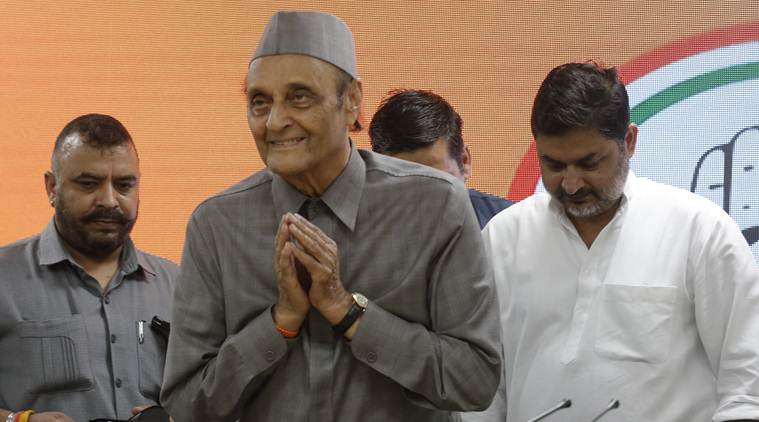
Senior Congress leader Dr Karan Singh, the last Yuvraj of Jammu and Kashmir’s Dogra dynasty, Thursday said he did not agree with the “blanket condemnation” against the Centre’s move to do away with provisions of Article 370 that granted special status to the state as he sees “several positives” in it.
Singh, the son of former J&K ruler Maharaja Hari Singh who acceded to the Union of India in 1947, welcomed the Union Territory status for Ladakh and said the gender discrimination in Article 35A needed to be addressed. “There will be a fresh delimitation which, for the first time, will ensure a fair division of political power between the Jammu and Kashmir regions,” he added.
Follow LIVE Updates from Jammu and Kashmir
Singh called it “unfair” to dismiss the two main regional parties in the state — the Peoples Democratic Party (PDP) and National Conference (NC) — as “anti-national”, and urged that its leaders be released as soon as possible. He said political dialogue must continue in Kashmir to help resolve the issues.
“At all costs communal harmony should be maintained and violence eschewed. The effort should be that Jammu and Kashmir attains full Statehood as soon as possible so that its people can at least enjoy the political rights available to the rest of the country,” Singh said. “My sole concern is to further the welfare of all sections and regions of the State.”
PDP chief Mehbooba Mufti and NC’s Omar Abdullah were put under house arrest earlier this week as the Centre proposed the reorganisation of state in Parliament. The Jammu and Kashmir Reorganisation Bill, 2019, which bifurcates the state into two Union Territories — Jammu and Kashmir with a legislature similar to Delhi or Puducherry, and Ladakh without one like Chandigarh — was ratified by both Houses on Tuesday.
In a speech in the Parliament in 2016, Singh had said Jammu and Kashmir was an extremely complex and complicated affair and there was no magic bullet that would solve it overnight.
“The day my father signed the Instrument of Accession, J&K became an integral part of India. On October 27, 1947, I was in the room; I was in the house when the Accession was signed. However, please remember something more, my father acceded for three subjects: Defence, Communication and Foreign Affairs. He signed the same Instrument of Accession that all the other Princely States signed. All the other States subsequently merged, but Jammu and Kashmir didn’t merge,” Singh, who became the first Governor of Jammu and Kashmir on March 30, 1965, had said.
Also Read | After NSA’s interaction with Kashmiris, Ghulam Nabi Azad says ‘money can buy anyone’
“Jammu and Kashmir’s relationship with the rest of India is guided by Article 370 and the State Constitution that I signed into law. Yes, it is an integral part of India, but we must realize that from the very beginning Jammu and Kashmir has been given a special position,” Singh said.